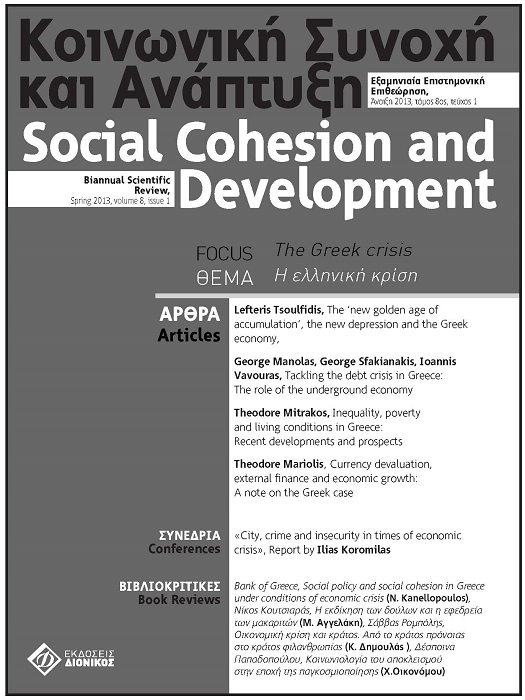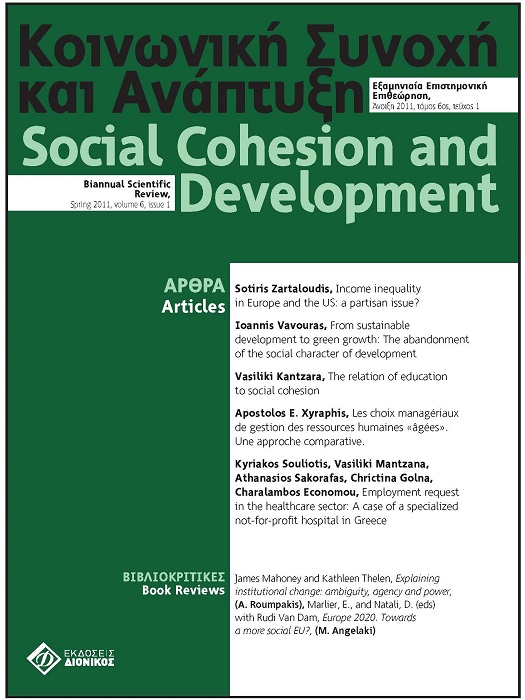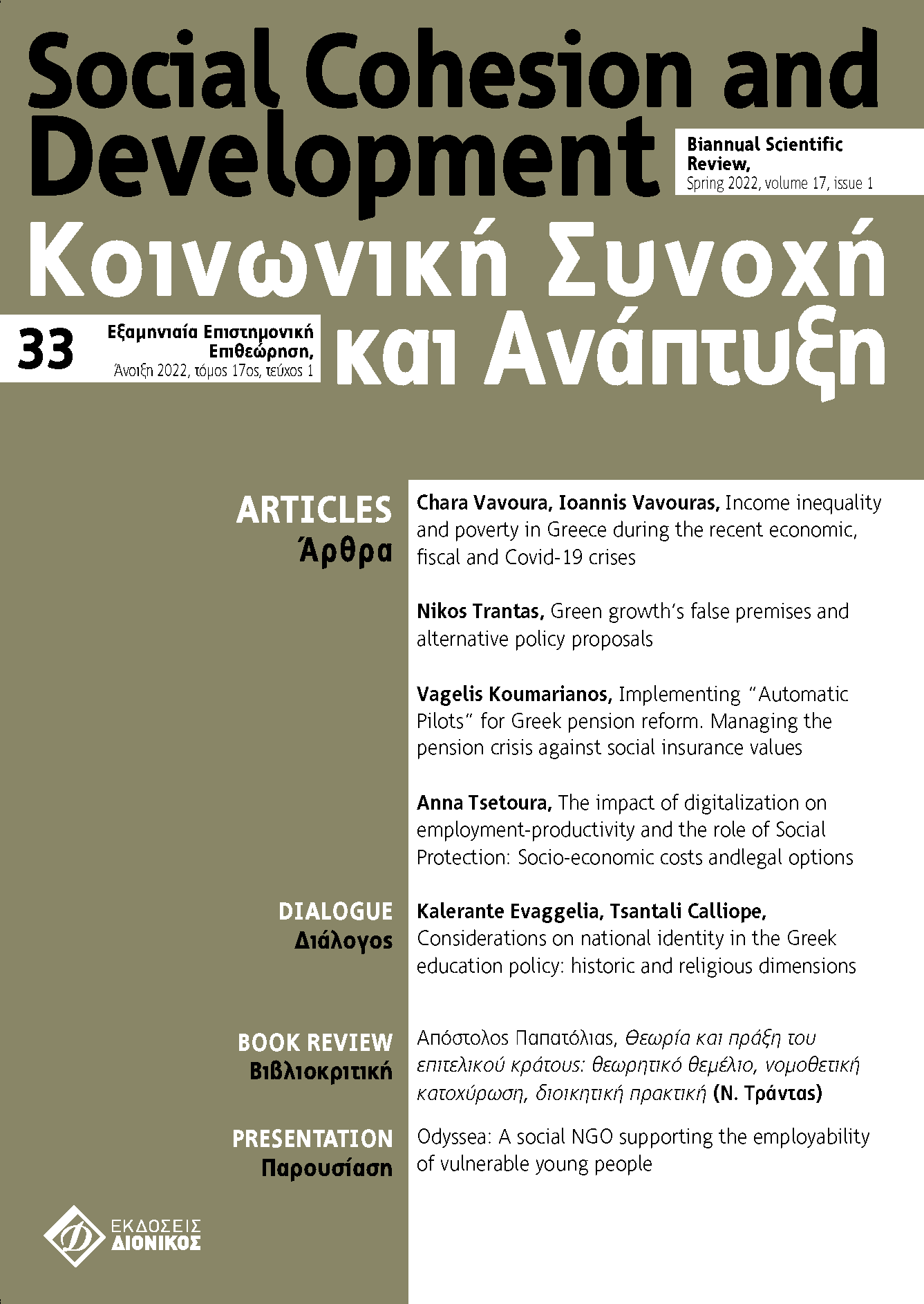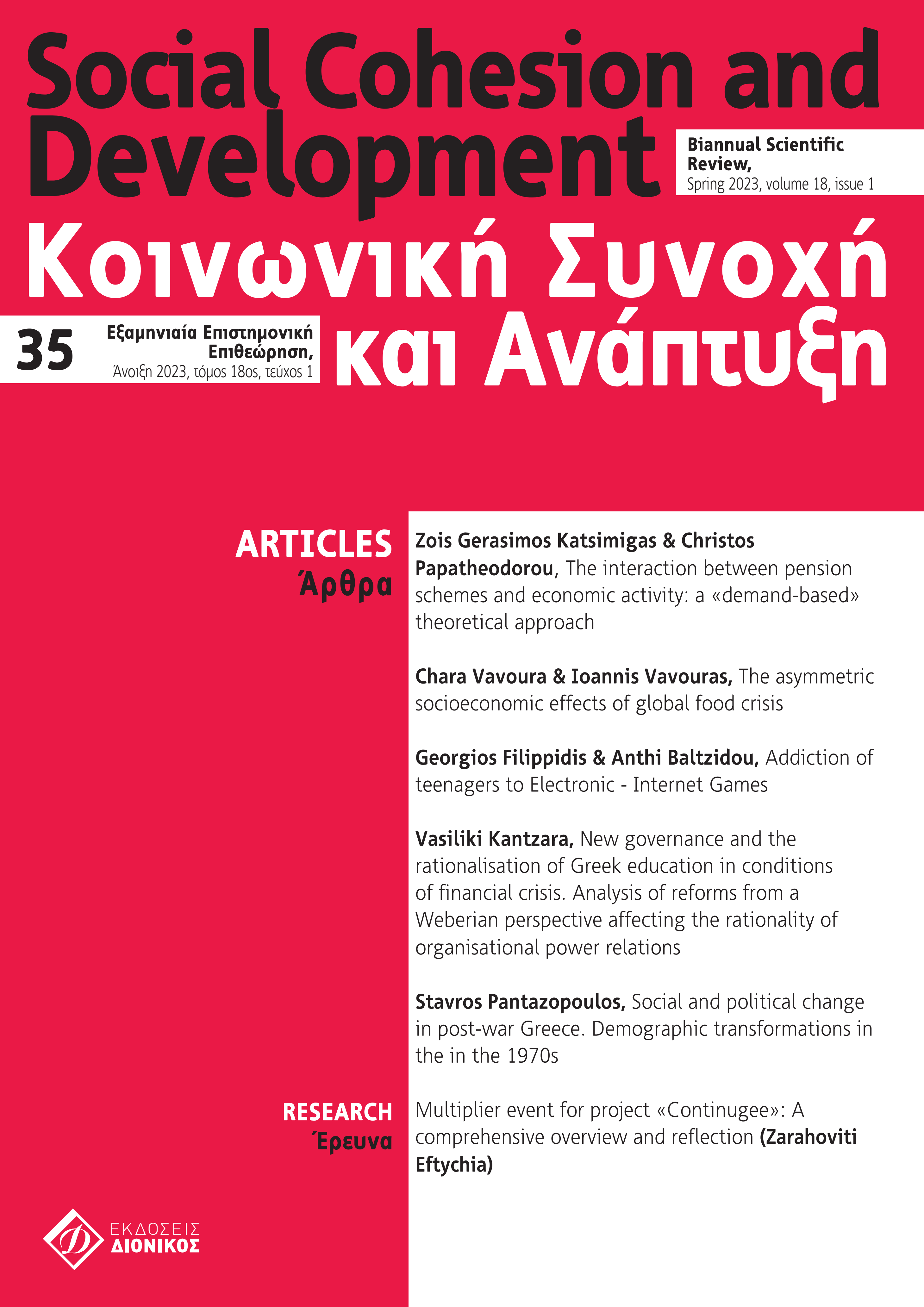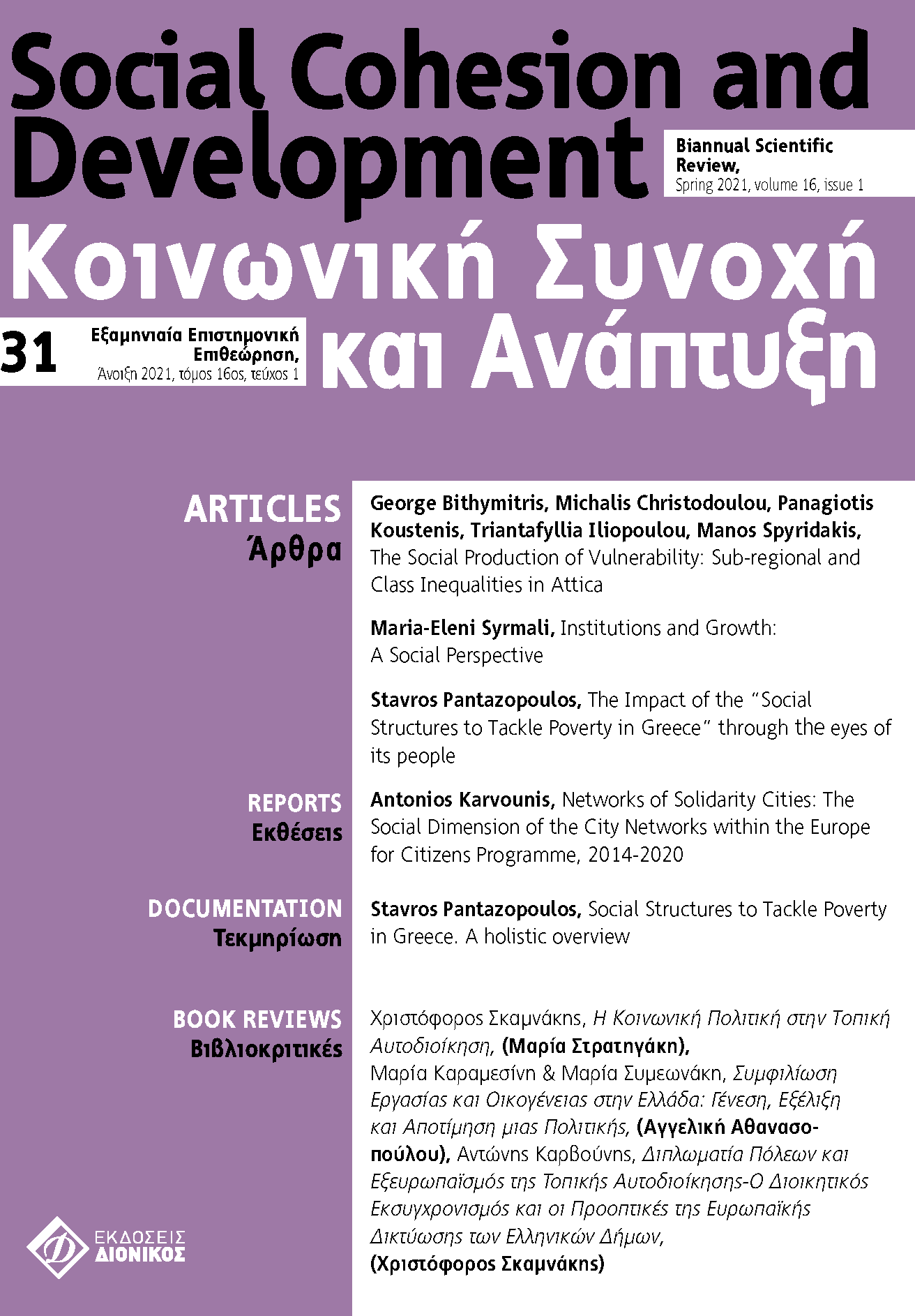Η σχέση μεταξύ της οικονομικής και κοινωνικής ανάπτυξης με την ανταγωνιστικότητα: Μια εμπειρική μελέτη
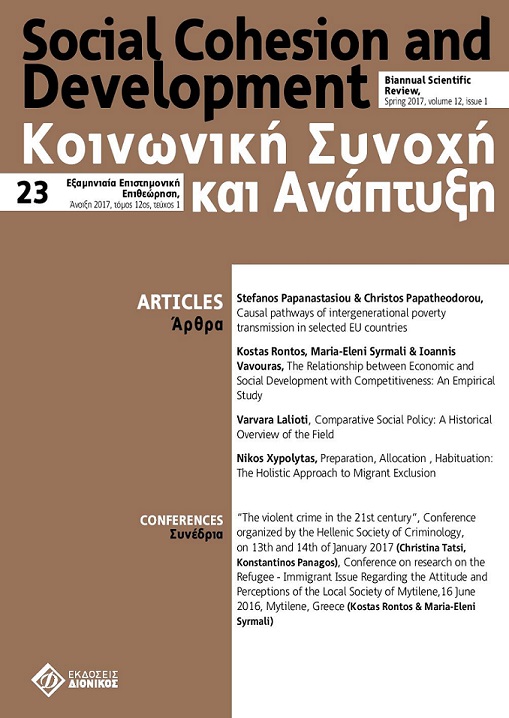
Περίληψη
Η επικράτηση θεσμικών εκτροπών υποδηλώνει την ύπαρξη οικονομικής και κοινωνικής υπανάπτυξης, καθώς και αδυναμίες πολιτικής φύσεως που είναι περισσότερο έκδηλες στα λιγότερο αναπτυγμένα κράτη. Χρησιμοποιώντας ένα παγκόσμιο δείγμα αναπτυγμένων και αναπτυσσόμενων χωρών αποδεικνύεται ότι η σχέση μεταξύ διαφθοράς, που συνιστά μια σοβαρή θεσμική παρέκκλιση, και εισοδήματος δεν είναι συμμετρική. Παρόλα αυτά, ο αποτελεσματικός έλεγχος της διαφθοράς δε θα πρέπει να θεωρείται ως «οιονεί αγαθό πολυτελείας», η ζήτηση του οποίου αυξάνει όταν επιτευχθεί ένα συγκεκριμένο επίπεδο εισοδήματος. Αντίθετα, είναι εφικτός μέσα από την υιοθέτηση και την αποτελεσματική εφαρμογή κατάλληλων μακροχρόνιων πολιτικών και θεσμικών μεταρρυθμίσεων.
Λεπτομέρειες άρθρου
- Πώς να δημιουργήσετε Αναφορές
-
Rontos, K., Syrmali, M.-E., & Vavouras, I. (2018). Η σχέση μεταξύ της οικονομικής και κοινωνικής ανάπτυξης με την ανταγωνιστικότητα: Μια εμπειρική μελέτη. Κοινωνική Συνοχή και Ανάπτυξη, 12(1), 21–37. https://doi.org/10.12681/scad.15943
- Τεύχος
- Τόμ. 12 Αρ. 1 (2017)
- Ενότητα
- Άρθρα

Αυτή η εργασία είναι αδειοδοτημένη υπό το CC Αναφορά Δημιουργού – Μη Εμπορική Χρήση – Παρόμοια Διανομή 4.0.
Οι συγγραφείς των άρθρων που δημοσιεύονται στην Κοινωνική Συνοχή και Ανάπτυξη διατηρούν τα δικαιώματα πνευματικής ιδιοκτησίας επί των άρθρων τους, δίνοντας στο περιοδικό το δικαίωμα της πρώτης δημοσίευσης. Άρθρα που δημοσιεύονται στην Κοινωνική Συνοχή διατίθενται με άδεια Creative Commons 4.0 και σύμφωνα με την άδεια μπορούν να χρησιμοποιούνται ελεύθερα, με αναφορά στο/στη συγγραφέα και στην πρώτη δημοσίευση για μη κερδοσκοπικούς σκοπούς και με δικαίωμα τροποποίησης μόνον με παρόμοια διανομή (αν αναμείξετε, τροποποιήσετε, ή δημιουργήσετε πάνω στο υλικό, πρέπει να διανείμετε τις δικές σας συνεισφορές υπό την ίδια άδεια όπως και το πρωτότυπο).


